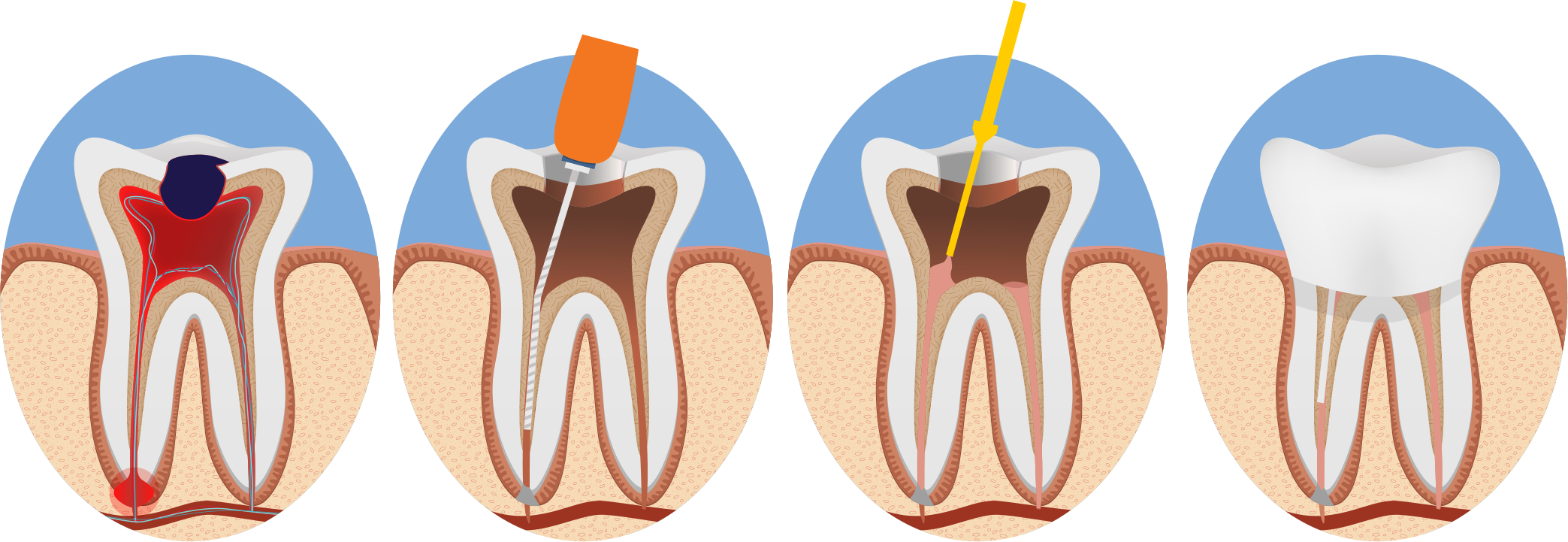


Pain
Relief
Root canal therapy relieves pain caused by tooth pulp (nerve) inflammation or infection, so you will leave our office feeling better than when you walked in.

Maintaining
Natural Teeth
Root canals help you keep your teeth that would otherwise need to be removed - we believe in maintaining your natural teeth whenever possible.

Avoiding
Tooth Loss
Neglecting to treat an infected tooth can result in tooth loss, which would likely mean more investment in dental care to replace the tooth or treat complications associated with leaving a space in your smile.

Preventing Spread
of Infection
Neglecting to treat an infected tooth can result in the infection spreading to other teeth and even entering the bloodstream, leading to serious medical implications, including the need for hospitalization.

Preserving the
Jawbone Structure
Keeping your natural teeth in place helps reduce the risk of jawbone degeneration, maintaining the integrity of your jawbone and facial structure.

Function and
Durability
A root canal-treated tooth can function like a natural tooth and, with proper care, can last a lifetime.

Despite their reputation, root canals do not cause pain. Removing the infection will help relieve you of the pain you experienced before treatment. So why do root canals evoke such negative feelings? While numbing the tooth helps manage your discomfort during your root canal, you may feel some post-operative pain, which progressively improves after treatment. That said, the pain is not from treatment, but rather, from the tooth nerve infection.
What Are Common Signs That You May Need Root Canal Treatment?
- Spontaneous tooth pain
- Throbbing tooth pain
- Toothache that worsens when you eat
- A dark or discolored tooth
- A chipped, cracked, or broken tooth
- Lingering, intense sensitivity to hot and cold temperatures
- A pimple-like bump on your gums
- A sour taste in your mouth
Having any of these symptoms does not necessarily mean you need root canal therapy. However, it is important to schedule a consultation. Dr. Melanie will conduct customary testing and a complete evaluation to determine a diagnosis. She will recommend the most conservative solution to restore your smile.
Why Choose Inspire Dental
for Your Dental Needs?
- We listen - you will always feel heard, respected, and valued at our practice.
- We know each patient is different - we tailor our services to your unique needs, providing exclusive, custom care.
- We always recommend the most conservative treatment options possible to restore healthy, beautiful smiles.
- We are different - we never want dentistry to feel like a drag - we work tirelessly to ensure every visit is comfortable and free of stress.
- We use cutting-edge technology and advanced equipment, including 2D and 3D digital x-rays and intra-oral cameras.
- We offer convenient online features like appointment requests, membership plans, payments, forms, and text messaging.
- We work hard to create a comfortable atmosphere - from OSHA compliance to comfort amenities, nitrous oxide sedation, and a patient-centered team - we strive to provide you with the best possible dental experience.
